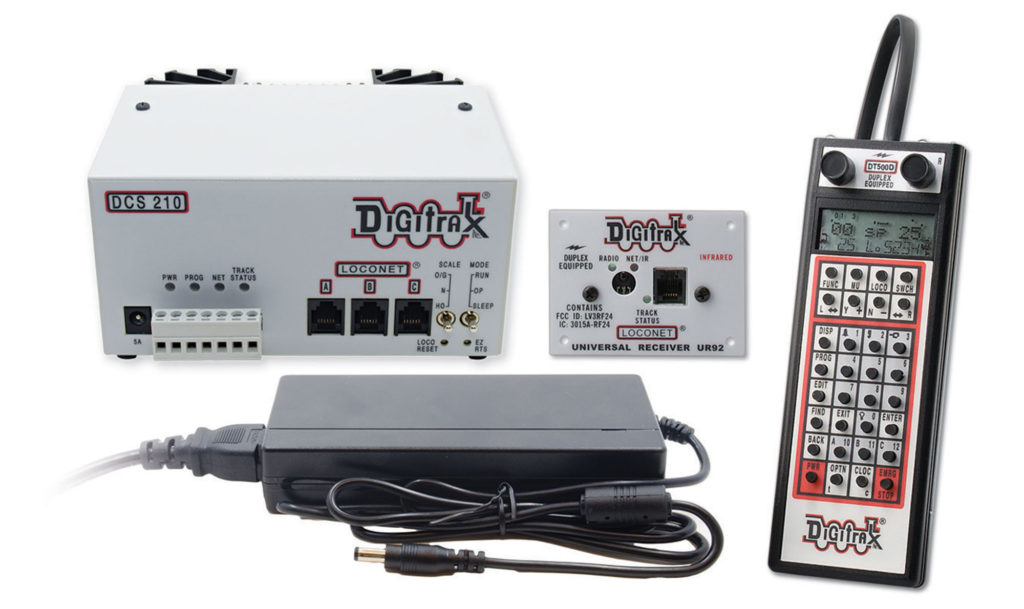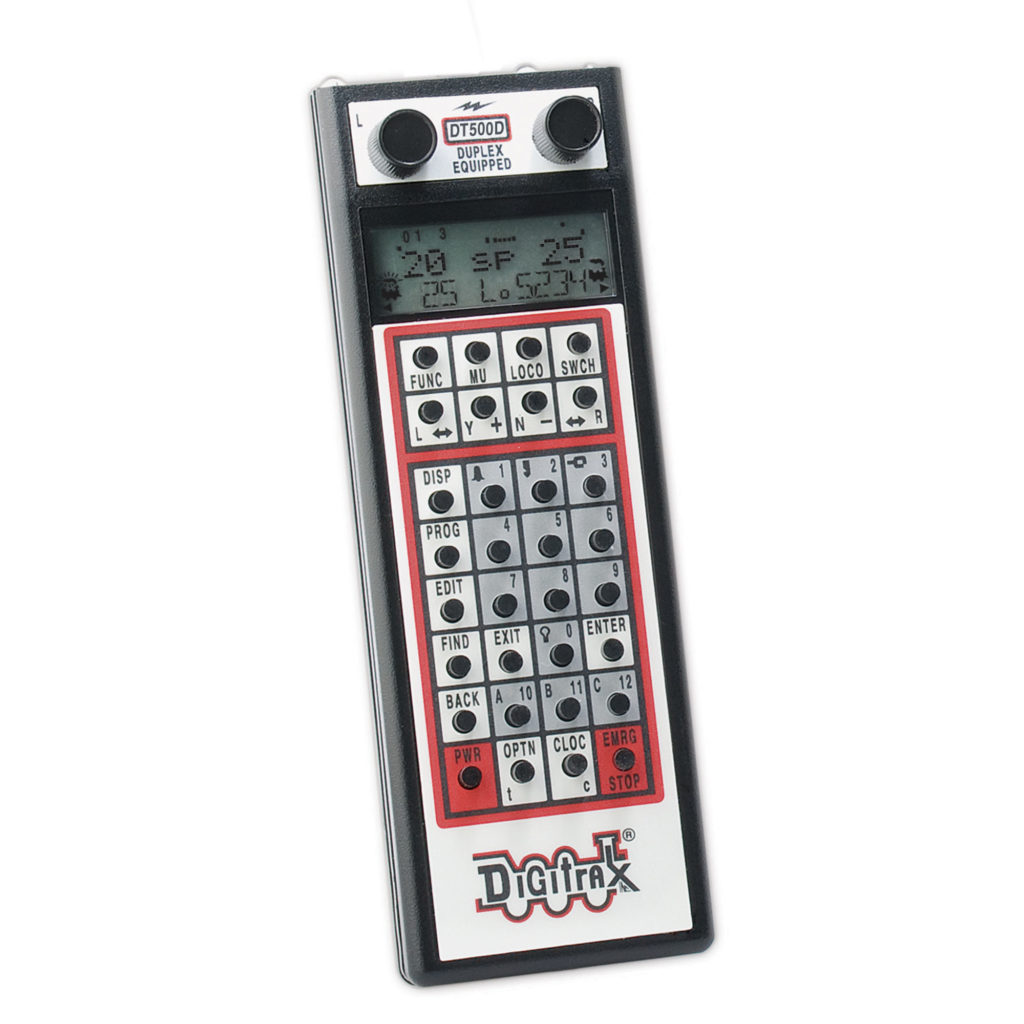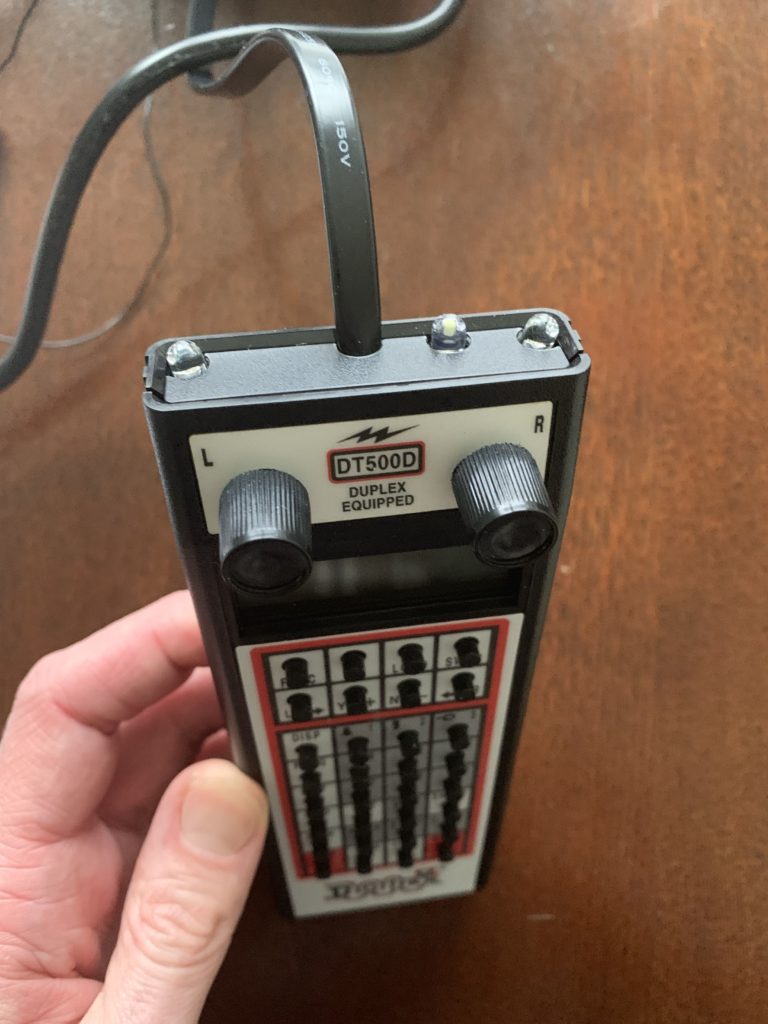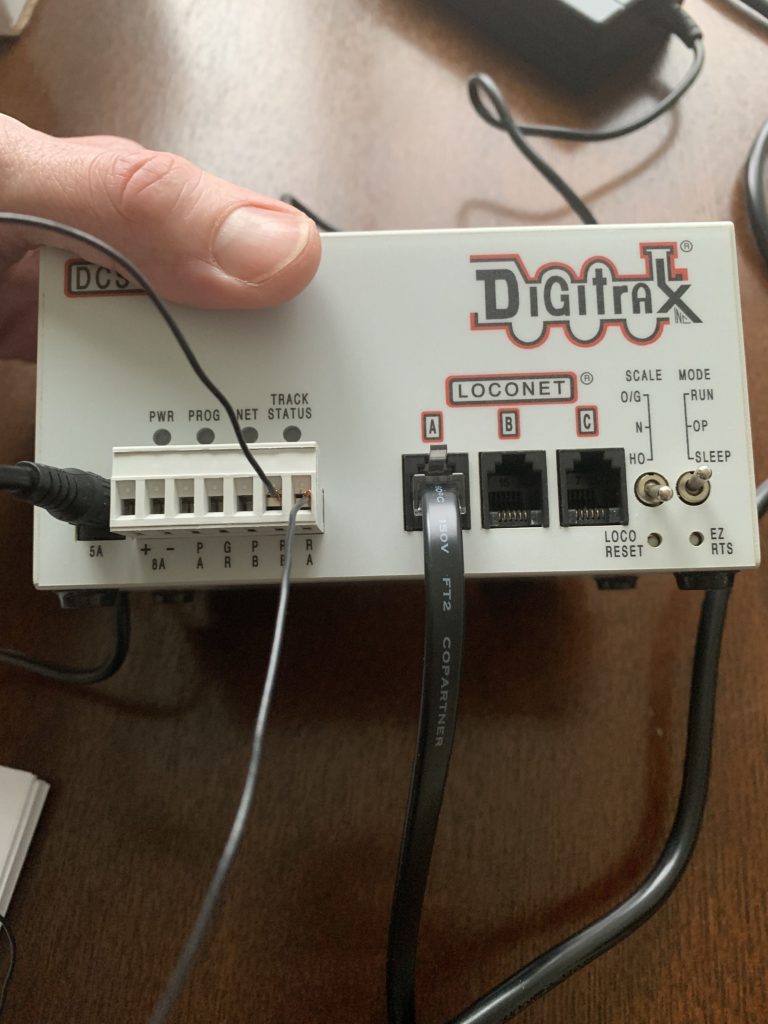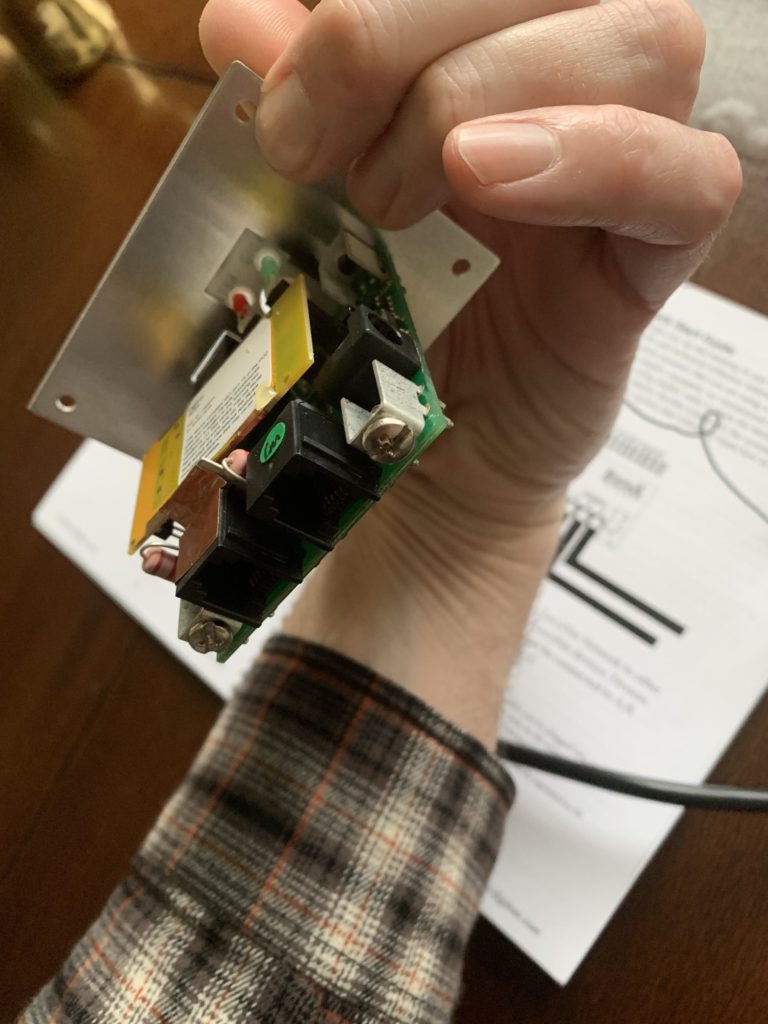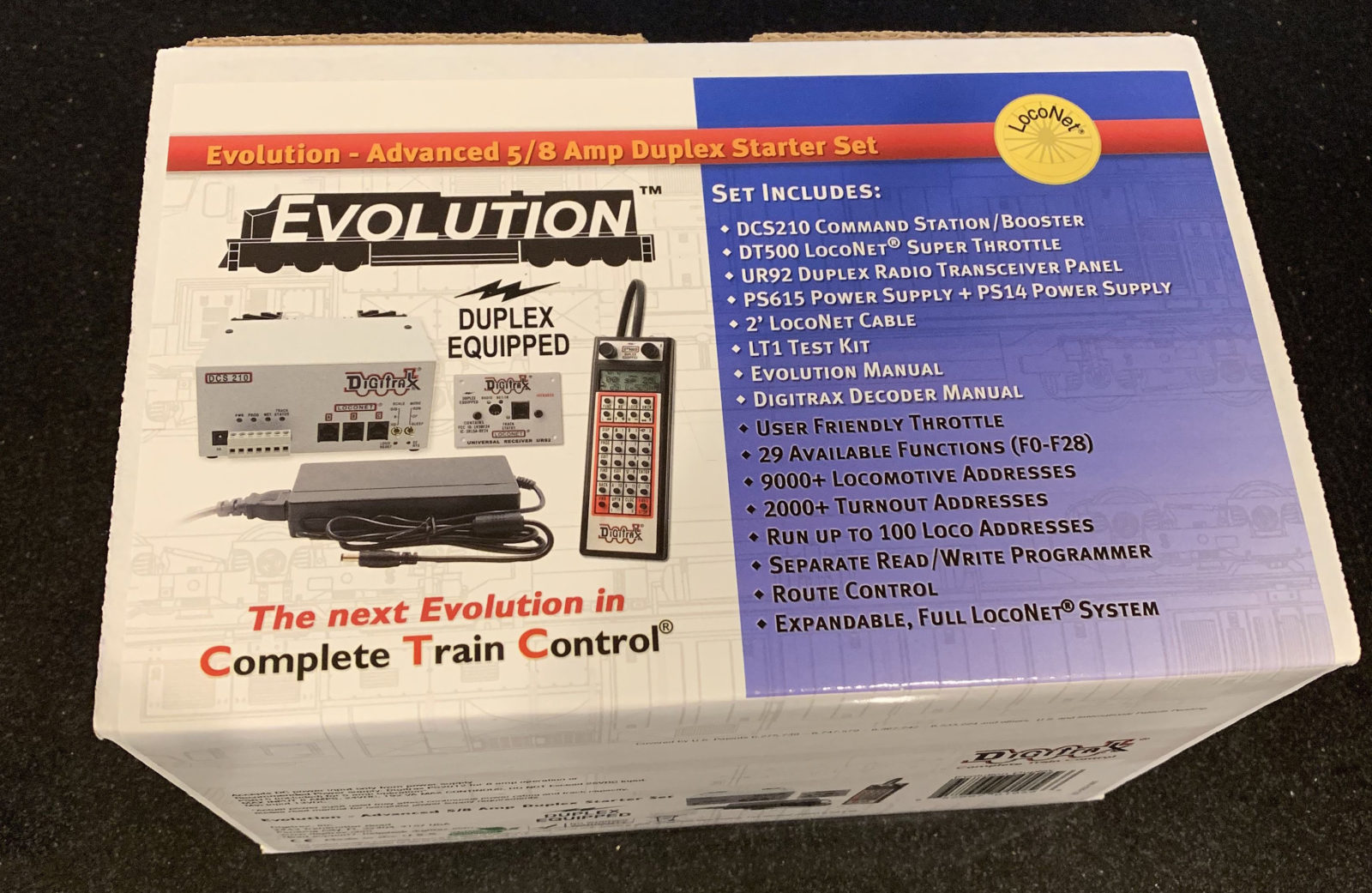I’ve never owned or used a DCC system before. From reading Model Railroader off and on since the 80s, Digitrax was a DCC brand name I was familiar with, and one that I’d most often notice on club layouts at train shows. So when I decided last November to look into DCC systems more closely, in order to get an idea of which brand’s system I’d want to eventually purchase, I first looked at the systems offered by Digitrax.
A starter set seemed the obvious choice, so I downloaded the user manual for their Evolution Advanced 5amp/8amp Duplex Starter Set and read the entire document to get a better understanding of how Digitrax, and DCC in general, works. The duplex version costs a couple hundred dollars more than the non-duplex version, which seemed a bit steep, especially considering I have the option of achieving wireless control via the Digitrax PR4 USB interface (sold separately) and JMRI. But after reading through the manual, I decided it’d be worth the extra $200 to have the option of going wireless while using the system’s main throttle. I also had a very good feeling about the Digitrax system, the additional circuits available for it and its flexibility. I can see why a lot of non-technical people are turned away from DCC. The Digitrax system in particular seems like it could get pretty complicated, but I don’t anticipate that being a problem for me.
After reading the Evolution manual, I next looked into the NCE systems. I just skimmed over the product information on their site, and briefly looked at a user manual. It’s quite possible that I didn’t give NCE a fair shake, but I decided pretty quickly that Digitrax was the sytsem for me, and ended my research. My impression is that Digitrax is a great system for advanced users (by advanced, I mean someone who can understand and retain technical information, and even write code for the system), has a lot of add-on circuits that I’ll likely want, and can be expanded easily.
On Feburary 10, I purchased the Digitrax Evolution starter set from Iron Planet Hobbies eBay for $517.99 + tax. At the same time, I purchased two Digitrax SDXH166D mobile decoders from Litchfield Station. I figured I’d put one in the Life-Like 4-6-2 Pacifc that I’m going to weather, and the other might go into the powered ‘A’ unit of my Athearn B&O F7 A-B-A set that my parents gave me for my 13th birthday, or in one of the old Mantua Pacifics I’m overhauling. I also tried to purchase a Digitrax PR4 USB interface from Litchfield, but was informed the day after ordering that they were out of stock. I was unable to find any place online that had the PR4 in stock until two weeks later, when Iron Planet listed some for sale. I’m excited to try it out this weekend.
My one disappointment with the Evo so far is with the DT500D duplex throttle. From the limited number of official product photos, I had assumed that the cable that comes out of the top of the throttle was removable. The throttle can be used wired or wirelessly, and the DT500D’s individual product photo shows no cable, while the photo of it in the Evo starter set shows it with a cable (see photos below). So I assumed the cable had an RJ12 plug on each end, so that the cable can be removed from either end (or both) when not in use. I was wrong. The cable is hardwired into the throttle, and only has a plug on the other end. So, when you are using it wirelessly, you still have a short cable dangling from the top of the device. Pretty annoying design, and very misleading product photo on the DT500D when sold by itself.
Other than that one big disappointment, I’m still very excited about the Digitrax system, and I look forward to learning more about it, and eventually prototyping some automation for a future layout.
